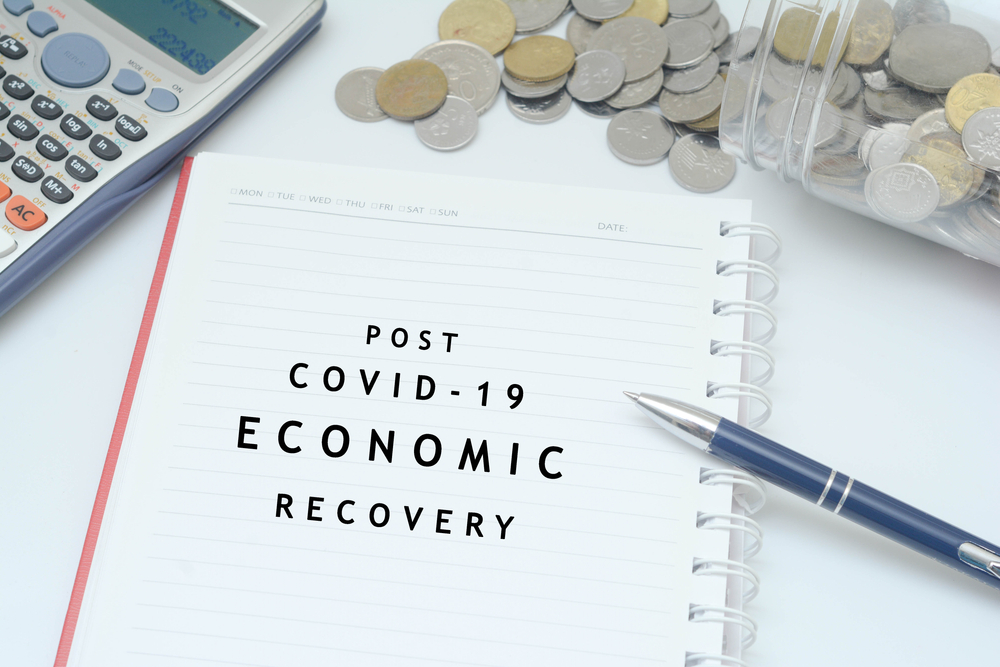Introduction
It is impossible to ignore how negatively the COVID-19 pandemic has affected the global economy. As we attempt to overcome this unprecedented crisis, we are thrust into a difficult and uncertain environment. This blog examines the intricate world of the post-pandemic economic recovery, shedding light on the challenges and opportunities that are still to come. It’s a journey that necessitates flexibility, tenacity, and teamwork. There are some encouraging signs, such as the acceleration of digital transformation and a rising emphasis on sustainability, even though serious problems like supply chain vulnerabilities, economic inequality, and labor market disruptions loom large. The direction our post-pandemic world takes and our ability to create a more resilient society will depend on how we all respond to these issues and equitable global economy.

- Economic Resilience in the Face of Uncertainty
The pandemic highlighted the importance of having a resilient economy. Global governments launched sizable stimulus packages to help people and businesses. These actions, which included monetary policy changes and fiscal spending, lessened the immediate economic impact. However, careful planning and structural changes are necessary for long-lasting resilience.
- The Role of Vaccination in Recovery
A quick and sustained economic recovery depends on vaccination programs that are effective. Successful vaccination campaigns have led to faster economic recovery in those nations. The disparities in vaccine distribution across the world and the appearance of new variants continue to be problems, underscoring how interconnected the global economy is.
- Labor Market Challenges
The pandemic disrupted labor markets significantly. Industries like healthcare and logistics saw labor shortages due to higher demand, while sectors like hospitality and tourism faced mass layoffs. Skill gaps emerged, underscoring the importance of education and adaptability in the post-pandemic era.
- Digital Transformation Acceleration
The pandemic accelerated the adoption of digital technologies across industries. Remote work, e-commerce, and digital payment systems surged in popularity. As we transition into the post-pandemic era, businesses must harness these digital advancements for sustained growth and competitiveness.
Supply Chain Resilience and Vulnerabilities
Global supply chains were made vulnerable by the pandemic, especially in just-in-time manufacturing and logistics. Businesses are therefore reconsidering their supply chain strategies. They are experimenting with diversification by sourcing from various geographic areas, embracing localization to lessen their reliance on foreign suppliers, and putting effective risk management strategies into practice. This change aims to increase supply chain resilience, guaranteeing continuity even in the face of unanticipated disruptions, and ultimately protect the flow of goods and services around the world.

- Government Debt and Fiscal Responsibility
The substantial government spending to combat the pandemic has resulted in increased levels of public debt. Striking a balance between addressing immediate crises and maintaining fiscal responsibility is a challenge government worldwide must grapple with in the post-pandemic recovery phase.
- Inflationary Pressures
Rapid economic recovery, coupled with supply chain disruptions, has fueled concerns about inflation. Central banks are closely monitoring price trends and considering adjustments to monetary policy to maintain price stability.
- Reshaping of Consumer Behavior
Consumer behavior was altered by the pandemic, and e-learning and remote work both had an effect on how much people spent. Recreational activities have also developed. Businesses must adapt to these changes by altering their offerings to reflect shifting consumer preferences. Adaptation is essential if you want to remain current and competitive in the post-pandemic landscape.
- Sustainable Recovery and ESG Focus
The post-pandemic recovery agenda places sustainability and environmental, social, and governance (ESG) considerations at the forefront. Businesses and investors are becoming more aware of how critical ethical behavior is to long-term resilience and growth.
- Geopolitical Considerations
Geopolitical tensions, trade disputes, and supply chain dependencies add complexity to the post-pandemic economic landscape. Navigating these dynamics while fostering international cooperation is crucial for global economic stability.
Challenges in Achieving an Inclusive Recovery
While the post-pandemic economic recovery presents opportunities, several challenges must be addressed to ensure inclusivity:
- Income Inequality
The pandemic exacerbated income inequality, particularly harming marginalized communities. Addressing inequalities in healthcare, education, and economic access is necessary for a fair recovery. Equal opportunities for all people, regardless of background, are essential for a just and sustainable post-pandemic future.
- Global Vaccine Equity
Equal access to vaccines worldwide is both morally required and essential for a strong economic recovery. By preventing the return to normalcy and obstructing international trade and travel, failure to address vaccine distribution disparities runs the risk of extending the pandemic’s economic effects, making it a crucial global concern.
- Digital Divide
Digital transformation should be inclusive, ensuring all segments of society benefit. Bridging the digital divide means providing affordable internet access and promoting digital literacy initiatives. This inclusivity is essential to enable everyone, regardless of their background, to fully participate in the digital economy and access its opportunities.
- Labor Market Realignment
Reskilling and upskilling are essential to align the workforce with changing job demands. Effective cooperation between governments, businesses, and educational institutions is crucial to provide the training and support needed for workers to transition successfully into new roles and industries, fostering economic resilience and individual career growth.
- Sustainable Practices
Promoting sustainability in business should not worsen social inequalities. Sustainable efforts should prioritize equitable pay, secure work environments, and responsible resource utilization, ensuring both environmental and social well-being are mutually upheld.
Conclusion: A Post-Pandemic Path Forward
The post-pandemic economic recovery is a complex journey marked by both opportunities and challenges. Resilience, adaptability, and a commitment to inclusivity and sustainability will be paramount in navigating this uncertain terrain. Governments, businesses, and individuals must work collaboratively to shape a future that not only recovers lost ground but also builds a more resilient, equitable, and sustainable global economy. The pandemic has shown us the importance of preparation and cooperation in the face of unprecedented crises, lessons we must carry forward into the post-pandemic era.
